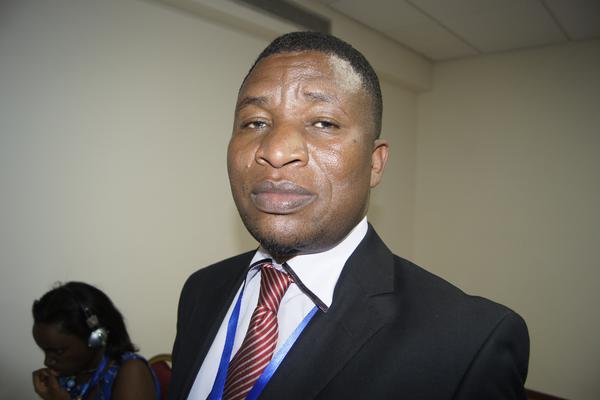A coalition of African environmental civil society organisations (CSOs) under the umbrella of the Pan Africa Climate Justice Alliance (PACJA) has expressed concern about lack of concrete outcomes so far, following the ongoing climate change negotiations in Katowice, Poland.

“We detest the fact that, despite working to beat the deadline to deliver a credible report as mandated by COP21 held in Paris in 2015, the Intergovernmental Panel on Climate Change (IPCC) is under contemptuous attack by a coalition of climate deniers revolving around the United States,” said Mithika Mwenda, Executive Director for PACJA.
“There is no doubt that we leave Katowice when the IPCC Special Report has been trashed by a section of parties to the Climate Change Convention thus posing a credibility gap to the report,” he said.
The coalition feels that this is not good news to climate diplomacy which has traditionally relied on IPCC to inform the conversations. And this, sadly, could be a victory to those who have fought to reverse gains made to combat climate crisis. The functionality of the Kyoto Protocol is currently on “life support machine” and may be declared dead by 2020 because 23 Parties/countries have deliberately declined to ratify the Doha Amendment.
“We therefore urge the COP24 Presidency to expedite the consultations both under the Presidency and the Ministerial consultations on such critical areas of finance; Modalities, Procedures and Guidelines (MPGs) under the Paris Agreement with a focus on Transparency, Guidance on Mitigation/NDCs, Global Stocktake and compliance; Technology; Adaptation; and Cooperative Implementation under Article 6 of the Paris Agreement,” said Mwenda.
He elaborated the issues as follows:
Climate finance: We are greatly disappointed with the negotiation progress and lack of concrete and ambitious outcomes on the climate finance. A day to the conclusion of the negotiations, there is still no clear roadmap to fulfil pre-2020 commitments climate finance commitment; no conclusion on discussion of the robust climate finance communication and reporting framework for developed countries. In addition, there is no clear guidance on how the Adaptation Fund will serve the Paris Agreement and its resource mobilisation, as well as lack of a way forward on initiating discussion for a new quantified climate finance goal.
We also convey our discomfort with the emerging trend where developed country Parties want to shift their climate finance obligation to private companies. As non-state actors recognised in the Paris Agreement, private companies may contribute to the mobilisation efforts, but developed country Parties should be guided by their obligation under Article 4.3 of the Convention, to provide public, grant-based, new and additional financial resources to developing countries. We wish to reiterate that developed country Parties should not exploit the finance provisions under the Paris Agreement to escape their obligation to provide new and additional climate finance under the Convention.
We welcome the pledges of $129 million to Adaptation Fund which broke the single-year record of resource mobilisation. However, it falls short of around $264 million required for the Fund. Much more need to be done to support adaptation. We further welcome pledges for Green Climate Fund, but additional substantial pledges should be made and fulfilled to make the replenishment process a success. Assessment should therefore be done to identify the amount of funds necessary to assist developing countries in implementing the Convention.
Adaptation: This is an essential pillar in African climate responses at all levels. We thus are worried about the disagreements on which Parties should be encouraged to provide resources for the implementation of the work of adaptation-related institutions; an inventory of relevant methodologies for assessing adaptation needs; and the role of the IPCC in that process.
Loss and Damage: Africa continues to suffer enormous economic losses in billions of dollars as a result of climate change impacts. This is coupled with un-costed social losses due to climate induced displacement of persons thus triggering conflicts. Our conviction is that insurance is not the best solution for loss and damage. As we continue calling for a predictable and grant-based financing approach for loss and damage, we reiterate that Loss and damage must be reflected separately throughout the Paris Agreement Work Programme and should be integrated into every agenda item.
Enhanced Transparency Framework: We demand for flexibility as guided by the principle of Common but Differentiated Responsibility and Respective Capabilities (CBDR-RC) for developing countries; and financial support with capacity building for the enhanced transparency framework.
Technology Transfer: We re-emphasis the need for provision of support to the technology mechanism, and that a clear and effective framework is put in place for the periodic assessment of the support provided by developed countries on technology development and transfer.
We urge the COP Presidency that he has a life-long legacy to cultivate, in avoiding any manoeuvres to open re-negotiations of the Paris Agreement by upholding the principles of transparent and participatory consultations. Ministers have the potential to simplify the complexities that remain outstanding under the technical negotiations. We encourage our African Ministers to be steadfast on the African Position to ensure the outcomes in Katowice reflect our peoples’ expectations and needs.
